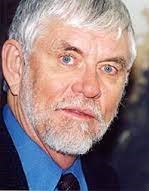
See detailed index below.
NAME: Bill Douglass
DATE OF INTERVIEW: 08/04/1993
LOCATION: University of Nevada Reno, Reno, NV
INTERVEWER: John and Mark Bieter
LANGUAGE: English
TAPE NO:
INDEXED BY: Daniel Chertudi
TAPE
MINUTE SUMMARY OF CONTENTS
Side 1
0-11:00 Bill talks about what it means to be Basque. There are 3 categories: French Basque, Spanish Basque, or just plain Basque. Anybody who wants to call him or herself Basque can do so as long as they have some Basque ancestry. Some people claim to be Basque just because their surname sounds Basque. Bill says that there are almost 3 times as many Basques in California as there are in Idaho or any other state; they seem to be more of a community in less-populated states, however, and may be more concentrated there. He ventures to say that the Boise Valley has the highest concentration of self-aware Basques outside of Euskadi, but this whole numbers question obscures the more relevant issue: Basques have been an important cultural factor in Boise. The community in Boise mobilizes more frequently and more consistently than anywhere else; he lists examples. Bill next discusses the new census and immigration.
11-23:00 Bill talks about what makes the Boise Basques unique: they are almost all Biscayan, they have organizations like the Oinkaris, and weightlifting (stones) is more popular there than in other places. He says the Oinkaris set the baseline for Basque dancing in the American West. He mentions Johnny Bastida and Benny Goitiandia and their determination to promote weightlifting at Basque festivals. The strong Basque restaurant tradition is also prevalent in Boise area. Bill next discusses urbanization patterns in modern-day Bilbao. He says that even though Argentina offered more opportunity for this century’s Basque immigrants (language, cultural similarities), there was more of an open frontier perception of the US, which explains the heavier immigration here. He also cites the conflict between Spain and Latin America, and the strength of chain migration (personal ties).
23-30:00 Bill says that Basque immigration to Idaho and the American West is not a tiny, but a small chapter in the history of Basque migration. He explains why it is difficult to quantify Basque migration from America back to Euskadi, but that most would probably be nationalists. Bill says that today, there is more Basque nationalist sympathy in Idaho than in the rest of the nation, but that the Basques in this state have historically been minimally political as regards Euskadi.
Side 2
0-13:00 Bill says that many more students from Euskadi are coming to study in the US, which is stirring more interest in the Basque language, culture and politics. Most of the early generations of immigrants weren’t concerned about preserving their culture; the language was purely functional, and they tended to have limited education. Immigrants did tend to marry among themselves, which reinforced their culture independently. He mentions the Good Shepherd Church in Boise (built by the Basque community), which is the closest thing to a Basque church in America. Its construction is incredible considering that the majority of Boise Basques were young, single male sheepherders, many of whom didn’t go to church (even on vacation), and most of whom were primarily concerned with making money and returning to Euskadi.
13-19:00 Bill mentions the Basque delegation that came to Boise in the 1930s, where they set up an office; this appears to have been exclusive to Idaho. The delegation had little success, because of opposition in the state government and the nonpolitical attitude of most Boise Basques. Even in Euskadi, Basque people had suffered to the point where they were markedly antinationalist.
NAMES AND PLACES
NAMES:
Bastida, John: proponent of Basque weightlifting
Goitiandia, Benny: Basque weightlifter
Oinkaris: Boise Basque dancers
PLACES:
Argentina
Boise, ID
California
Good Shepherd Church: Basque-built church in Boise
Reno, NV
THEMES:
Clubs and organizations
History
Immigration
Language
Nationalism
Politics
Religion
Sheepherders